Selenium(IV) chloride (-8 mesh)

Selenium(IV) chloride (-8 mesh) structure
|
Common Name | Selenium(IV) chloride (-8 mesh) | ||
|---|---|---|---|---|
| CAS Number | 10026-03-6 | Molecular Weight | 220.77200 | |
| Density | 2.6 g/mL at 25 °C(lit.) | Boiling Point | 288ºC | |
| Molecular Formula | Cl4Se | Melting Point | 200-210ºC | |
| MSDS | Chinese USA | Flash Point | N/A | |
| Symbol |



GHS06, GHS08, GHS09 |
Signal Word | Danger | |
| Name | Selenium tetrachloride |
|---|---|
| Synonym | More Synonyms |
| Density | 2.6 g/mL at 25 °C(lit.) |
|---|---|
| Boiling Point | 288ºC |
| Melting Point | 200-210ºC |
| Molecular Formula | Cl4Se |
| Molecular Weight | 220.77200 |
| Exact Mass | 219.79200 |
| LogP | 2.37720 |
| Index of Refraction | 1.807 |
| InChIKey | LNBXMNQCXXEHFT-UHFFFAOYSA-N |
| SMILES | Cl[Se](Cl)(Cl)Cl |
CHEMICAL IDENTIFICATION
HEALTH HAZARD DATAACUTE TOXICITY DATA
|
| Symbol |



GHS06, GHS08, GHS09 |
|---|---|
| Signal Word | Danger |
| Hazard Statements | H301 + H331-H373-H410 |
| Precautionary Statements | P261-P273-P301 + P310-P311-P501 |
| Personal Protective Equipment | Eyeshields;Faceshields;Gloves;type P2 (EN 143) respirator cartridges |
| Hazard Codes | T,N |
| Risk Phrases | 23/24/25-34-50/53-33-23/25 |
| Safety Phrases | 22-26-36/37/39-45-61-60-28-20/21 |
| RIDADR | UN 3290 6.1/PG 2 |
| WGK Germany | 3 |
| RTECS | VS7875000 |
| Packaging Group | II |
| Hazard Class | 8 |
| Precursor 10 | |
|---|---|
| DownStream 10 | |
|
Lipocalin-type prostaglandin D synthase produces prostaglandin D2 involved in regulation of physiological sleep.
Proc. Natl. Acad. Sci. U. S. A. 103(47) , 17949-54, (2006) Prostaglandin (PG) D2 has been proposed to be essential for the initiation and maintenance of the physiological sleep of rats because intracerebroventricular administration of selenium tetrachloride (... |
|
|
Prostaglandin D synthase in the prenatal ovine brain and effects of its inhibition with selenium chloride on fetal sleep/wake activity in utero.
J. Neurosci. 22(13) , 5679-86, (2002) It has been proposed that prostaglandin (PG) D(2) induces physiological sleep in mammals by acting on sleep centers located in the anterior hypothalamus. In fetal sheep, definitive rapid-eye-movement ... |
|
|
Inhibition of sleep in rats by inorganic selenium compounds, inhibitors of prostaglandin D synthase.
Proc. Natl. Acad. Sci. U. S. A. 88(20) , 9046-50, (1991) Prostaglandin (PG) D2 has been postulated to be an endogenous sleep-promoting factor in rats, and SeCl4 and Na2SeO3 recently have been shown to inhibit the PGD synthase (prostaglandin-H2 D-isomerase, ... |
| tetrachloro-|E4-selane |
| EINECS 233-053-5 |
| selenium chloride |
| MFCD00011225 |
| selenium tertachloride |
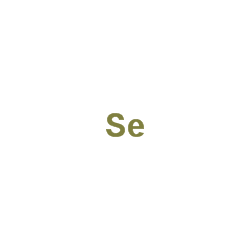 CAS#:7782-49-2
CAS#:7782-49-2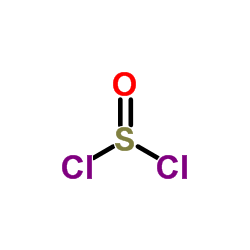 CAS#:7719-09-7
CAS#:7719-09-7 CAS#:7791-25-5
CAS#:7791-25-5 CAS#:7782-50-5
CAS#:7782-50-5 CAS#:10025-68-0
CAS#:10025-68-0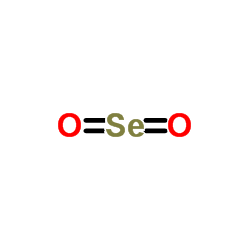 CAS#:7446-08-4
CAS#:7446-08-4 CAS#:7647-01-0
CAS#:7647-01-0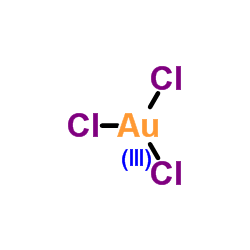 CAS#:13453-07-1
CAS#:13453-07-1 CAS#:14457-70-6
CAS#:14457-70-6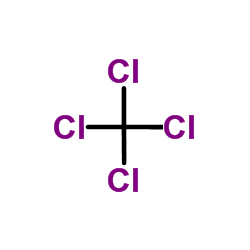 CAS#:56-23-5
CAS#:56-23-5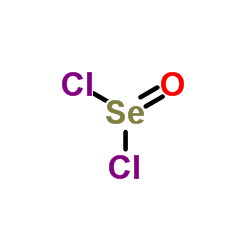 CAS#:7791-23-3
CAS#:7791-23-3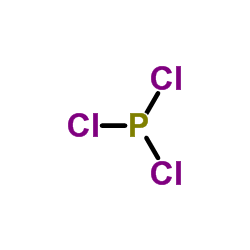 CAS#:7719-12-2
CAS#:7719-12-2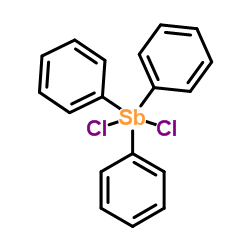 CAS#:594-31-0
CAS#:594-31-0 CAS#:7488-56-4
CAS#:7488-56-4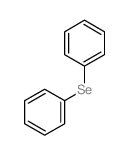 CAS#:1132-39-4
CAS#:1132-39-4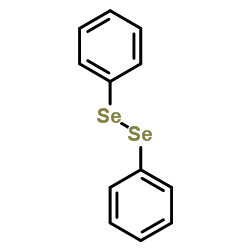 CAS#:1666-13-3
CAS#:1666-13-3
